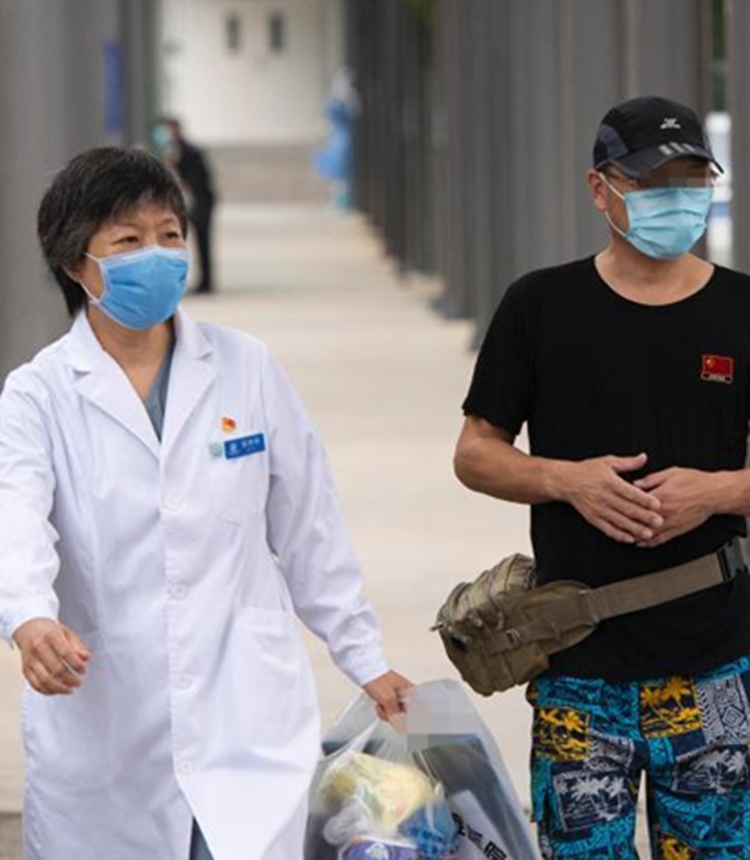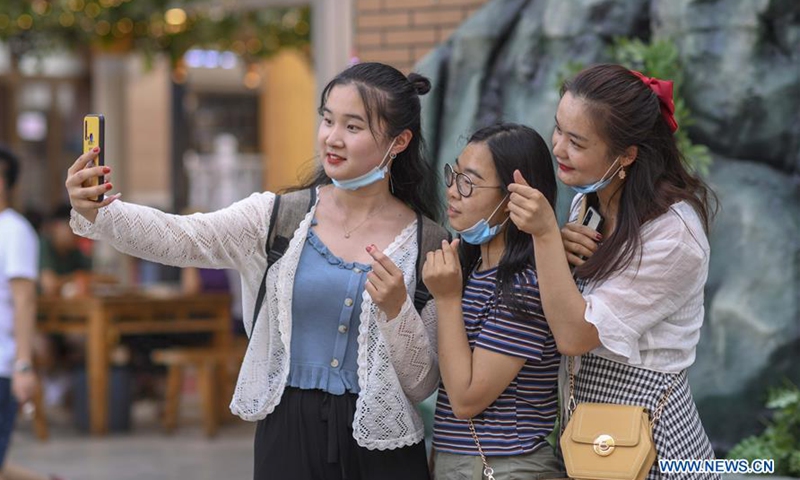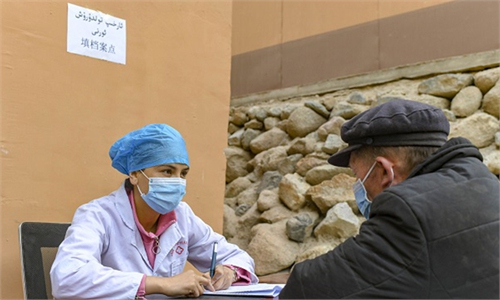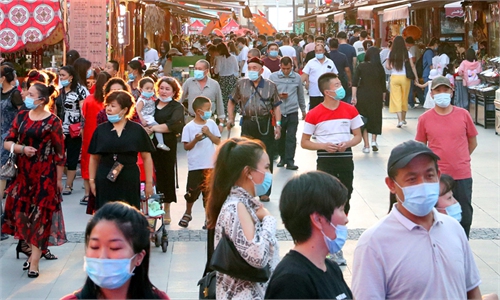Xinjiang police dismiss rumors that woman coming back from Kazakhstan was source of clustered infections

A staff member checks body temperature for a truck driver from Kazakhstan at an inspection hall in Alataw Pass, northwest China's Xinjiang Uygur Autonomous Region, April 11, 2020. (Xinhua/Sadat)
While the source of the recent clustered infections in Urumqi, capital of Northwest China's Xinjiang Uygur Autonomous Region, remains unclear, local police dismissed rumors saying the outbreak was caused by a woman coming back from Kazakhstan.

Tourists pose for photos while visiting the grand bazaar in Urumqi, capital of northwest China's Xinjiang Uygur Autonomous Region, July 4, 2020. (Xinhua/Zhao Ge)
As of Tuesday, Xinjiang has reported 47 confirmed cases and 50 asymptomatic cases in its latest clustered infection. Some 46 confirmed cases are in Urumqi, capital city of Xinjiang, and one in Kashgar. Two patients are critically ill.
The person who spread the rumors, a female surnamed Jin, was punished by local police. Jin falsely claimed that the woman did not take a nucleic acid test or undergo quarantine on her return from Kazakhstan,
The epidemiological investigation and analysis by the disease control department showed that the first reported patient of the outbreak, and other confirmed or asymptomatic infections in Urumqi, all had no history of travel to overseas countries, according to the city's anti-epidemic group.
Zhang Yuexin, a medical expert who is part of the Xinjiang anti-epidemic group and also professor of the infectious disease department of the First Affiliated Hospital of Xinjiang Medical University, told the Global Times on Monday that "ports in Xinjiang linking Kazakhstan and Russia have been strictly sealed off since Spring Festival, and no one from overseas has come through the ports to the region since then."
Xinjiang has also been adopting strict anti-epidemic measures for incoming vehicles and drivers at goods ports, said Zhang, who has been with health authorities in Xinjiang inspecting how the anti-epidemic measures were implemented in ports in the past months.
In order to clarify the source of infection for the outbreak, disease control departments are performing genetic sequencing of the virus, improving the tracking of the relevant people and supplementing epidemiological information.
While the gene sequencing test is still ongoing, other speculations over the source of infections in Urumqi cannot be trusted, Zhang said, adding that the current COVID-19 infections are mainly related to a wedding ceremony held in Urumqi in early July.
According to the Xinjiang Uygur Autonomous Region Health Commission on Monday, 16 patients in Urumqi and nine asymptomatic viral carriers were confirmed to be infected with COVID-19. One patient in Kashgar, who was from Urumqi, was also confirmed to be infected.
Rui Baoling, the director of the local CDC in Urumqi said on Monday that after the outbreak they have been busy conducting epidemiological investigations and screening close contacts. The health authority has also tested the environments of key products, food and venues as well as sampled sewage in the city, with all results coming back negative.
The city has also disinfected outer environments that might be contaminated with the virus, Rui said.



